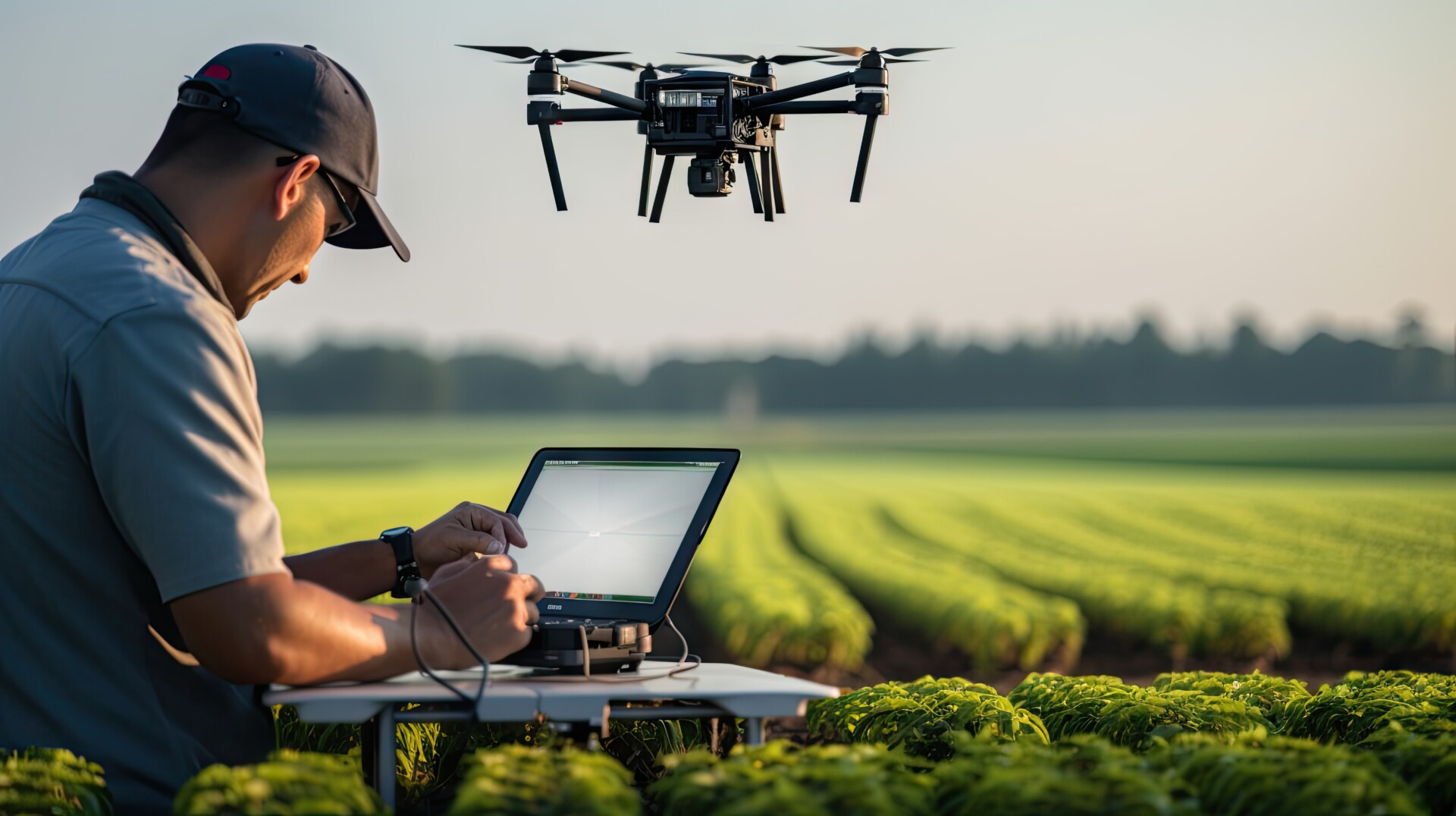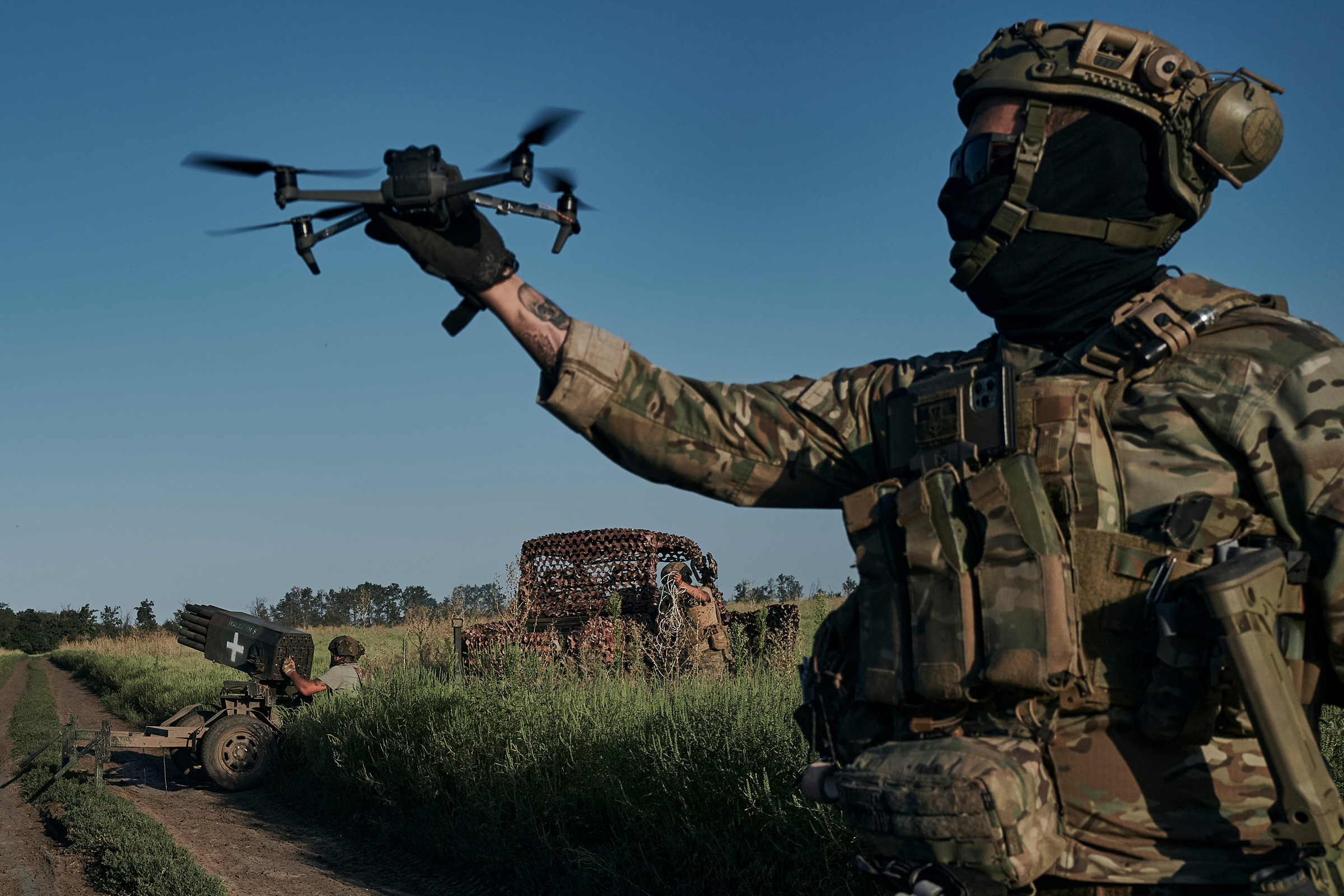As military technology continues to evolve, the intersection of artificial intelligence (AI) and autonomous systems is rapidly transforming the way wars are fought. One of the most significant innovations on this front is the development of AI-powered drones, which are poised to play a central role in modern warfare. However, as with any technology that holds such destructive potential, questions about control, accountability, and ethics are paramount. Eric Schmidt, the former CEO of Google, has become an influential voice in this discussion, advocating for the essential role of human oversight in the use of AI-driven drones in warfare. His views, shaped by his experience in both technology and defense, have sparked important conversations about the future of military strategy, autonomy, and the need for meaningful human control.
Here's ads banner inside a post

A New Era in Warfare: AI-Powered Drones
Eric Schmidt’s involvement with AI-controlled drones is not just theoretical. After stepping down as Google’s CEO, Schmidt founded the AI startup White Stork, which is developing autonomous drone technology for use in the ongoing conflict between Ukraine and Russia. This technology is part of a broader shift toward utilizing AI to control increasingly sophisticated weapons systems, including drones capable of both surveillance and combat operations. Schmidt’s company, alongside other leading defense technology firms like Palmer Luckey’s Anduril, is helping to push the boundaries of what is possible with AI in military applications.
Here's ads banner inside a post
Schmidt’s position on AI drones represents a forward-thinking approach to warfare. He envisions a future where human soldiers are far removed from the front lines, with advanced machines, particularly AI-driven drones, doing the heavy lifting. In a lecture at Stanford University, Schmidt remarked that the conflict in Ukraine had, in a sense, transformed him into a “licensed arms dealer.” He argued that the real innovation was the use of AI in complex and strategic ways that could radically change the dynamics of modern combat. “The future of war is AI, networked drones of many different kinds,” Schmidt said, emphasizing the growing role of these autonomous systems in future conflicts.
The Case for Human Control
Despite his enthusiasm for AI drones, Schmidt is not advocating for an entirely autonomous battlefield. He strongly believes that human operators must retain meaningful control over AI drones, especially when it comes to making critical decisions. This stance was underscored during an interview on PBS, where Schmidt explained that the traditional method of having armed human soldiers engage directly in combat was becoming outdated. Instead, he suggested that the future of warfare would involve drones that are “well up front” and controlled remotely by human operators who are “well behind” the front lines.

Here's ads banner inside a post
For Schmidt, the critical concept is ensuring that humans remain an integral part of the decision-making process. This is especially important when it comes to military ethics and accountability. In the same PBS interview, Schmidt warned against the dangers of allowing machines to make life-or-death decisions autonomously. He likened such a scenario to the fictional “Dr. Strangelove” situation, in which a weapon system makes its own decisions without human intervention. This, Schmidt argued, would be catastrophic, as the technology could potentially make errant decisions that lead to unforeseen consequences.

Schmidt’s vision of AI-controlled warfare involves a “human in the loop” system. In this framework, the AI system generates the battle plan based on real-time data and complex algorithms, but it is up to a human operator to authorize the plan. This ensures that there is human oversight, and more importantly, human responsibility for any potential mistakes that might arise. By maintaining this level of control, Schmidt believes that AI drones can be used safely and ethically in combat situations, while also providing the strategic advantages of automation.
The Human Role in Autonomous Warfare
Schmidt’s insistence on human control reflects broader concerns about the ethical implications of AI in warfare. The idea of autonomous weapons making decisions without human input raises profound questions about accountability and the potential for disastrous outcomes. For instance, who is responsible if an AI drone targets the wrong individuals or causes unintended collateral damage? These concerns are particularly pressing in the context of military operations, where the stakes are incredibly high.

The importance of human oversight is also crucial in maintaining the legitimacy of military actions. If AI drones were allowed to operate entirely on their own, it could lead to a situation where military decisions are made by algorithms with no human accountability. This could erode public trust in military actions and complicate the legal and ethical frameworks that govern warfare. Schmidt’s vision of “meaningful human control” aims to strike a balance between the potential of AI and the need for human judgment, responsibility, and transparency.
The Shift from Traditional Warfare
In addition to the technical and ethical considerations, Schmidt’s comments reflect a larger shift in the nature of warfare. Traditionally, warfare has relied on heavy, human-led operations such as tanks, infantry, and fighter jets. However, Schmidt views these older forms of combat as “antiquated” in the modern context. At a tech conference in Saudi Arabia, he argued that tanks, for example, are no longer as effective in the face of cheaper, more nimble drone technology. In his view, a $5,000 drone could easily destroy a $5 million tank, making the traditional models of warfare increasingly obsolete.
This shift in thinking about military strategy underscores the growing role of autonomous technology in modern conflicts. Schmidt’s comments about the obsolescence of tanks and other heavy machinery reflect a broader trend toward more efficient, less expensive alternatives. Drones, which can be deployed at scale and controlled remotely, offer a more flexible and cost-effective way to wage war. This technological evolution is reshaping not only how wars are fought, but also how military tactics and strategies are developed.

The Rise of Counter-Technologies
As with any new military technology, the rise of autonomous drones is likely to prompt the development of counter-technologies. Just as Schmidt and others work to refine AI-driven drones, military defense firms are also focusing on ways to counter these drones and protect against potential threats. Scott Sacknoff, the president of aerospace and defense investment firm Spade Index, pointed out that autonomous drones are “definitely a trend” in the defense sector, but that the military is always looking for ways to counter emerging technologies.

The rapid pace of innovation in both drone technology and countermeasures suggests that the landscape of modern warfare will continue to evolve at a fast pace. As drones become more prevalent on the battlefield, it’s likely that we’ll see new technologies aimed at disrupting or neutralizing them. This ongoing arms race between drone technology and countermeasures is a testament to the complexity and unpredictability of future warfare.
A New Paradigm in Warfare
Eric Schmidt’s views on AI drones in warfare represent a new paradigm in military strategy. While he acknowledges the tremendous potential of AI-powered systems to revolutionize combat, he emphasizes the need for human control to ensure ethical standards, accountability, and effective decision-making. As autonomous drones continue to shape the future of warfare, Schmidt’s insistence on maintaining a “human in the loop” will be critical in guiding the development and deployment of these technologies. In this way, AI drones could become powerful tools in modern warfare, provided they are used responsibly and under the guidance of human operators who can ensure they are deployed ethically and effectively. The future of warfare is undoubtedly shifting, and as this technology evolves, so too will our understanding of the responsibilities and risks that come with it.


